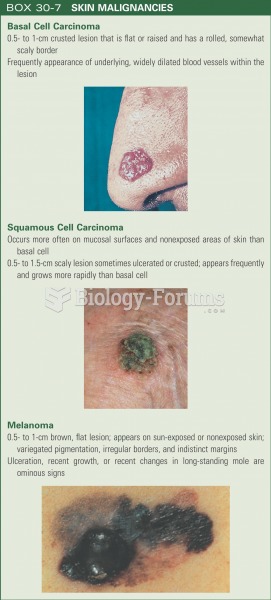This topic contains a solution. Click here to go to the answer
|
|
|
Did you know?
Hippocrates noted that blood separates into four differently colored liquids when removed from the body and examined: a pure red liquid mixed with white liquid material with a yellow-colored froth at the top and a black substance that settles underneath; he named these the four humors (for blood, phlegm, yellow bile, and black bile).
Did you know?
Fungal nail infections account for up to 30% of all skin infections. They affect 5% of the general population—mostly people over the age of 70.
Did you know?
Eat fiber! A diet high in fiber can help lower cholesterol levels by as much as 10%.
Did you know?
Drying your hands with a paper towel will reduce the bacterial count on your hands by 45–60%.
Did you know?
If all the neurons in the human body were lined up, they would stretch more than 600 miles.
 Rituals such as the sacrament of the Anointing of the Sick are important expressions of religious be
Rituals such as the sacrament of the Anointing of the Sick are important expressions of religious be
 Rhytidoplasty. This is a common form of plastic surgery in which the skin is pulled and sutured to d
Rhytidoplasty. This is a common form of plastic surgery in which the skin is pulled and sutured to d
 It is important for new employees to know the location of all fire extinguishers. (A) Pull the pin ...
It is important for new employees to know the location of all fire extinguishers. (A) Pull the pin ...




